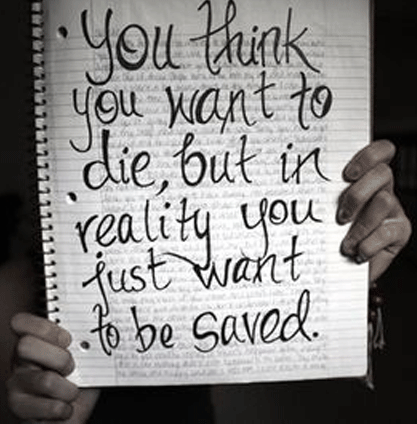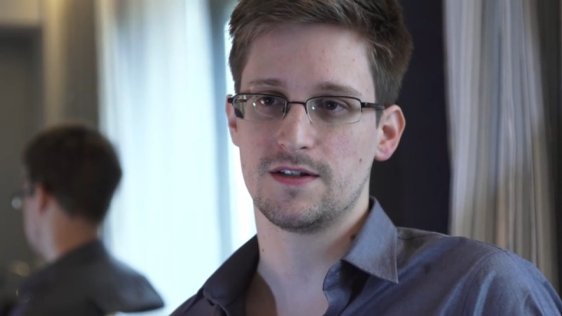As an activist, a geek, and a privacy scholar, I’ve been watching the NSA scandal unfold with a mixture of curiosity, outrage, and skepticism. I don’t feel as though I have enough information yet to make an informed opinion about exactly what the State is doing or how tech companies are involved, let alone the implications of these procedures. But one thing I do know is that most Americans are going to shrug their shoulders and move on while most of my friends are going to rally for increased transparency, governmental oversight, corporate commitments to resist governmental abuse, and efforts to better inform the public. And although I share all of their values and desires, I also feel the need to reflect on why I think that our activism as it is currently constructed is not going to rally the mainstream.
Whenever I asked my British grandfather any ethical question about his military service, I received one consistent reply: “for God and country.” He was a bomber pilot. And as a young activist, I couldn’t understand how he could table any ethics questions that way. So many innocent people died as a byproduct of his efforts to kill off Nazis. I never doubted the value of his service, but didn’t he every wonder about the random people who were killed in the process? No. “For God and country.”
I’m consistently amazed by how many Americans, who distrust the State’s “socialist” agenda, are fully supportive of any effort by the State to protect citizens from “terrorists” and other perceived miscreants. All too often, this is often cloaked in prejudicial language, focused on a narrative of “them” that is marked as other because of race, ethnicity, or religion. Ironically, even though it’s discussed as being about citizens vs. the other, naturalized citizens and children of naturalized citizens often get categorized as the other when their race, ethnicity, or religion is part of the broader feared other.
Embedded in this desire to be protected from the other is people’s belief that the State will never use sweeping power to surveil them or their friends, only the other. Some people recognize that they may end up in the large databases, but they assume they’ll be thrown away because they’re irrelevant. And besides, they’ve done nothing wrong. They have nothing to hide. Christianity often plays a role here, as people feel as though they’re already being watched and judged for their actions. And this is how we get back to “for God and country.”
When people view the State – or its military – as being a source of good to protect the populace from evil, they’re often willing to accept that actions will be taken to enhance security that may result in surveillance. They don’t necessarily see this as a trade-off between civil liberties and security because they don’t think that they’ll feel any restriction on *their* civil liberties. Rather, only people who’ve done something wrong will. And thus anyone who does feel a restriction on civil liberties must be doing something wrong.
On the flipside, I’m always astonished by how normative surveillance is in poverty-stricken communities. Surveillance is common place and many poor people are used to having to fork over tremendous amounts of personal information to get social services. And, in communities defined by practices like “stop and frisk,” the idea of not being watched and targeted is completely alien. So when these groups find out that the State is monitoring mediated interactions, why should they be surprised? Why should they react? From their perspective, it’s just another tool for the State to do what they’ve always been doing, only perhaps without the direct costs to dignity that many of these people face on a regular basis.
So who will be outraged? Who will be shocked? Who will be surprised? Mostly, I expect, my friends. All told, my friends are a highly educated, highly connected, highly privileged lot who are passionate about changing the world through making, educating, research, and activism. By and large, my friends’ only negative interactions with law enforcement are through protesting or other efforts to stand up to The Man. They expect civil liberties to protect them as they push for causes that they believe are just. They know (at least in theory) that the legal process is broken for less privileged people, but they still expect that it’ll work for them. Or they at least believe that they can call on their networks to bail them out, publicize their case, and generally support them to right any wrong. They have a widespread faith in fairness and justice, even when they’re fighting to combat inequality and injustice.
No activist wants to hear about secret abuses of power because it tilts the playing field, rendering challenges to the status quo even more difficult. Even when those very same activists have a healthy paranoia and believe that their foes are secretly abusing power. But “proof” is different. “Proof” is a rallying call, a justification for long-standing and difficult efforts to speak truth to power. “Proof” reinforces one’s beliefs, while also serving as fuel for being angry that more people don’t get angry. But it also blinds people from seeing why others don’t necessarily jump on their bandwagon because of their own values, beliefs, and assumptions.
I’m glad that my friends are energized and determined to fight harder to make a more just world. And I understand why they’re scared and angry by the potential of what’s being revealed. We’re all easy targets to watch because we’re loudspoken and we extensively use technology to coordinate our change-making efforts. And our networks are full of people who are politically suspect. Particularly activists, hackers, and foreign nationals from problematic nations. In many ways, we’re more the targets of the panopticon than so-called terrorists. Because destabilizing our privilege and belief in justice means that we can be controlled by fear. And so while I suspect that my friends will continue to speak of civil liberties and marginalized peoples, I can’t help but wonder if these kinds of revelations have more implications for activists than for anyone else. And if that’s the case, then what?
Update 9 June 2013 @ 5:53PM: Today, Edward Snowden revealed that he is a patriotic American and the NSA whistleblower. This is most likely going to change every aspect of what unfolds, how the American public reacts, and what the long term implications of this story are. But, at this point, it’s hard to tell exactly where the chips will fall. I am hopeful that this means more people will engage. At the same time, I’m even more afraid for my activist friends. But I don’t yet have the foggiest clue of what the implications of all of this will mean.
 We’re afraid of and afraid for teenagers. And nothing brings out this dualism more than discussions of how and when teens should be allowed to participate in public life.
We’re afraid of and afraid for teenagers. And nothing brings out this dualism more than discussions of how and when teens should be allowed to participate in public life. Consider Tess’ story. In 2007, she and her friend killed her mother. The media reported it as “girl with MySpace kills mother” so I decided to investigate the case. For 1.5 years, she documented on a public MySpace her struggles with her mother’s alcoholism and abuse, her attempts to run away, her efforts to seek help. When I reached out to her friends after she was arrested, I learned that they had reported their concerns to the school but no one did anything. Later, I learned that the school didn’t investigate because MySpace was blocked on campus so they couldn’t see what she had posted. And although the school had notified social services out of concern, they didn’t have enough evidence to move forward. What became clear in this incident – and many others that I tracked – is that there are plenty of youth crying out for help online on a daily basis. Youth who could really benefit from the fact that their material is visible and someone is paying attention.
Consider Tess’ story. In 2007, she and her friend killed her mother. The media reported it as “girl with MySpace kills mother” so I decided to investigate the case. For 1.5 years, she documented on a public MySpace her struggles with her mother’s alcoholism and abuse, her attempts to run away, her efforts to seek help. When I reached out to her friends after she was arrested, I learned that they had reported their concerns to the school but no one did anything. Later, I learned that the school didn’t investigate because MySpace was blocked on campus so they couldn’t see what she had posted. And although the school had notified social services out of concern, they didn’t have enough evidence to move forward. What became clear in this incident – and many others that I tracked – is that there are plenty of youth crying out for help online on a daily basis. Youth who could really benefit from the fact that their material is visible and someone is paying attention.

 This post was originally written for
This post was originally written for 